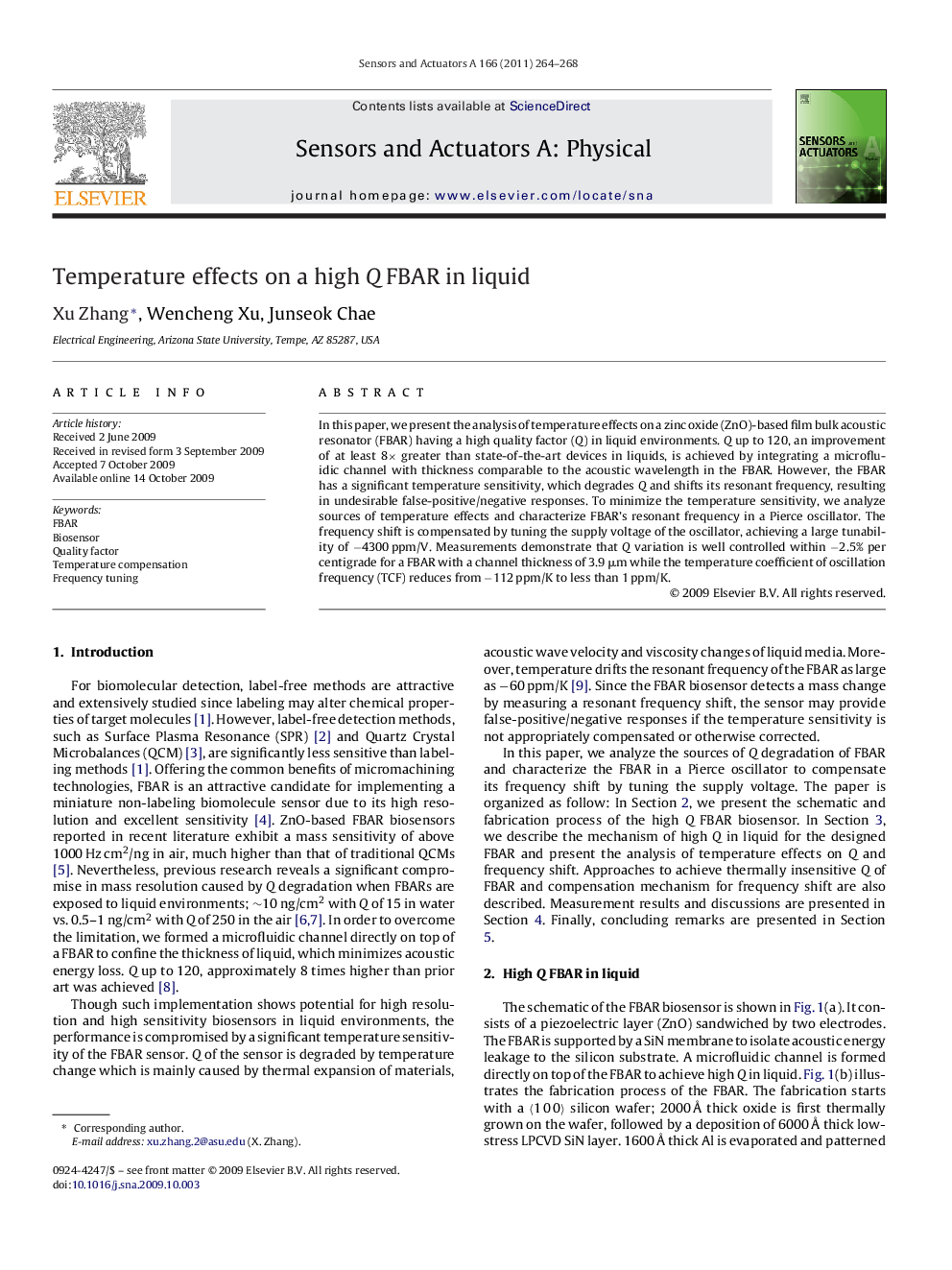| Article ID | Journal | Published Year | Pages | File Type |
|---|---|---|---|---|
| 736438 | Sensors and Actuators A: Physical | 2011 | 5 Pages |
In this paper, we present the analysis of temperature effects on a zinc oxide (ZnO)-based film bulk acoustic resonator (FBAR) having a high quality factor (Q) in liquid environments. Q up to 120, an improvement of at least 8× greater than state-of-the-art devices in liquids, is achieved by integrating a microfluidic channel with thickness comparable to the acoustic wavelength in the FBAR. However, the FBAR has a significant temperature sensitivity, which degrades Q and shifts its resonant frequency, resulting in undesirable false-positive/negative responses. To minimize the temperature sensitivity, we analyze sources of temperature effects and characterize FBAR's resonant frequency in a Pierce oscillator. The frequency shift is compensated by tuning the supply voltage of the oscillator, achieving a large tunability of −4300 ppm/V. Measurements demonstrate that Q variation is well controlled within −2.5% per centigrade for a FBAR with a channel thickness of 3.9 μm while the temperature coefficient of oscillation frequency (TCF) reduces from −112 ppm/K to less than 1 ppm/K.
